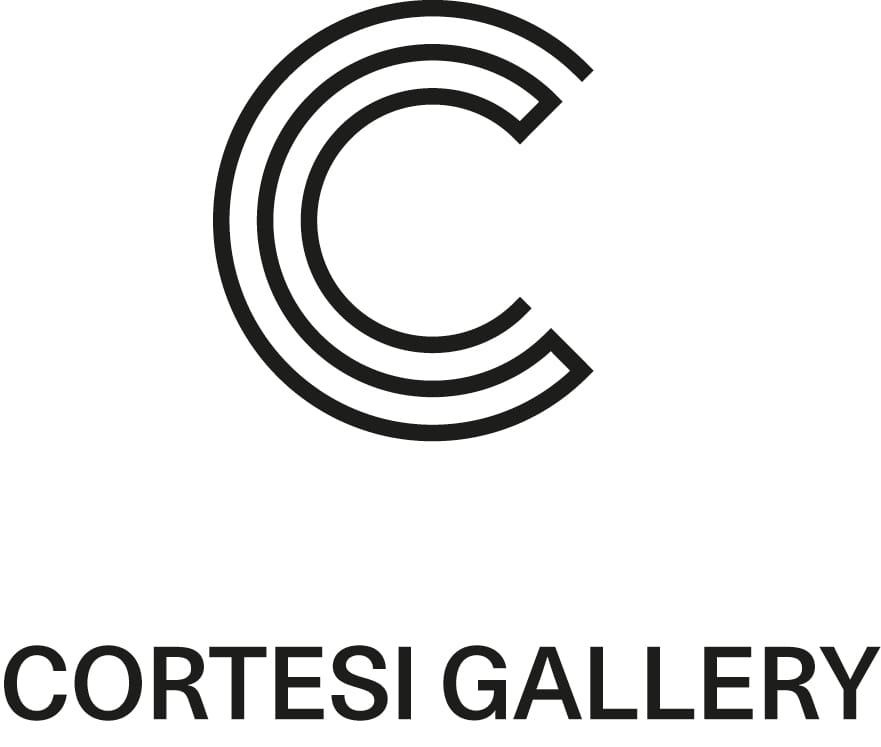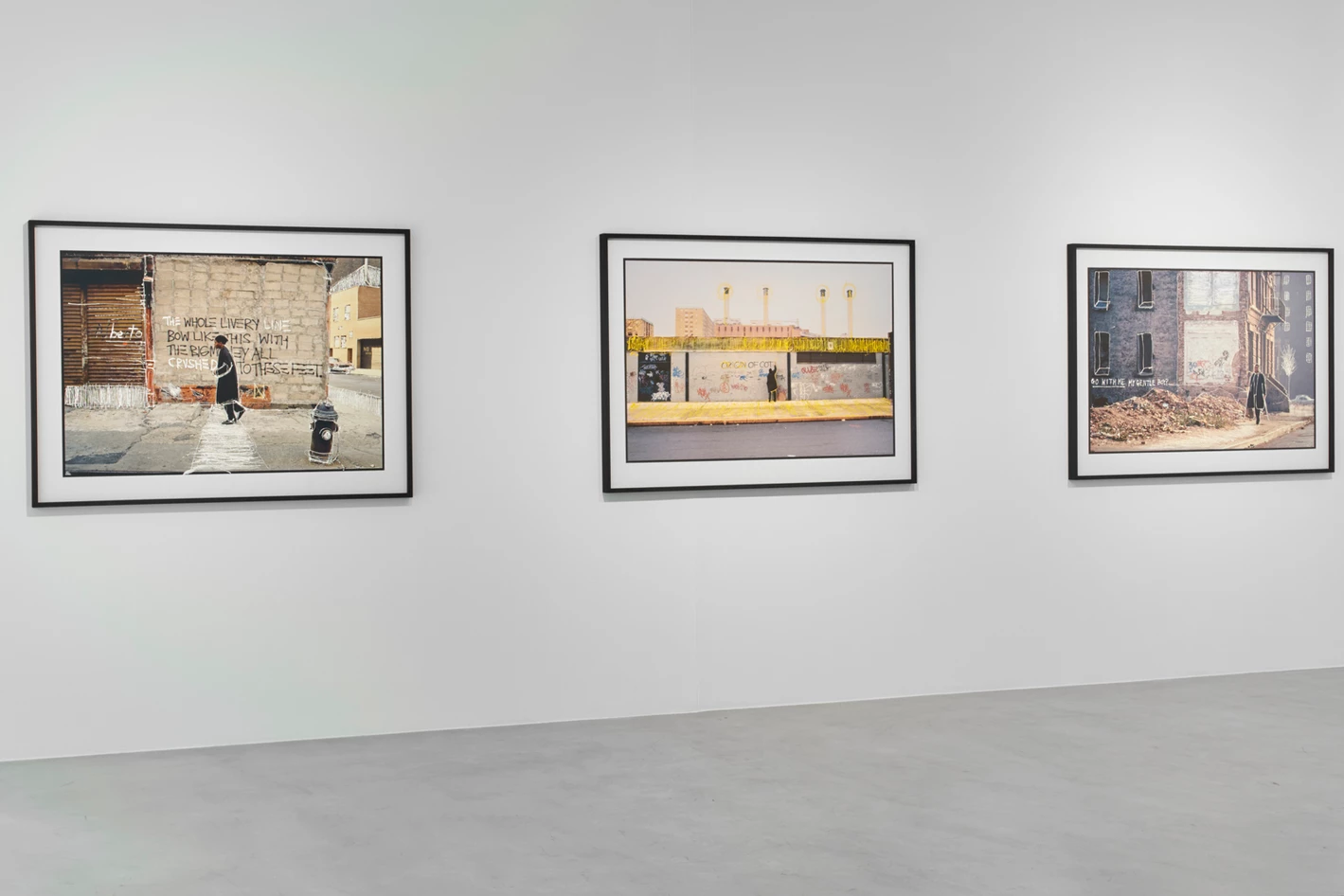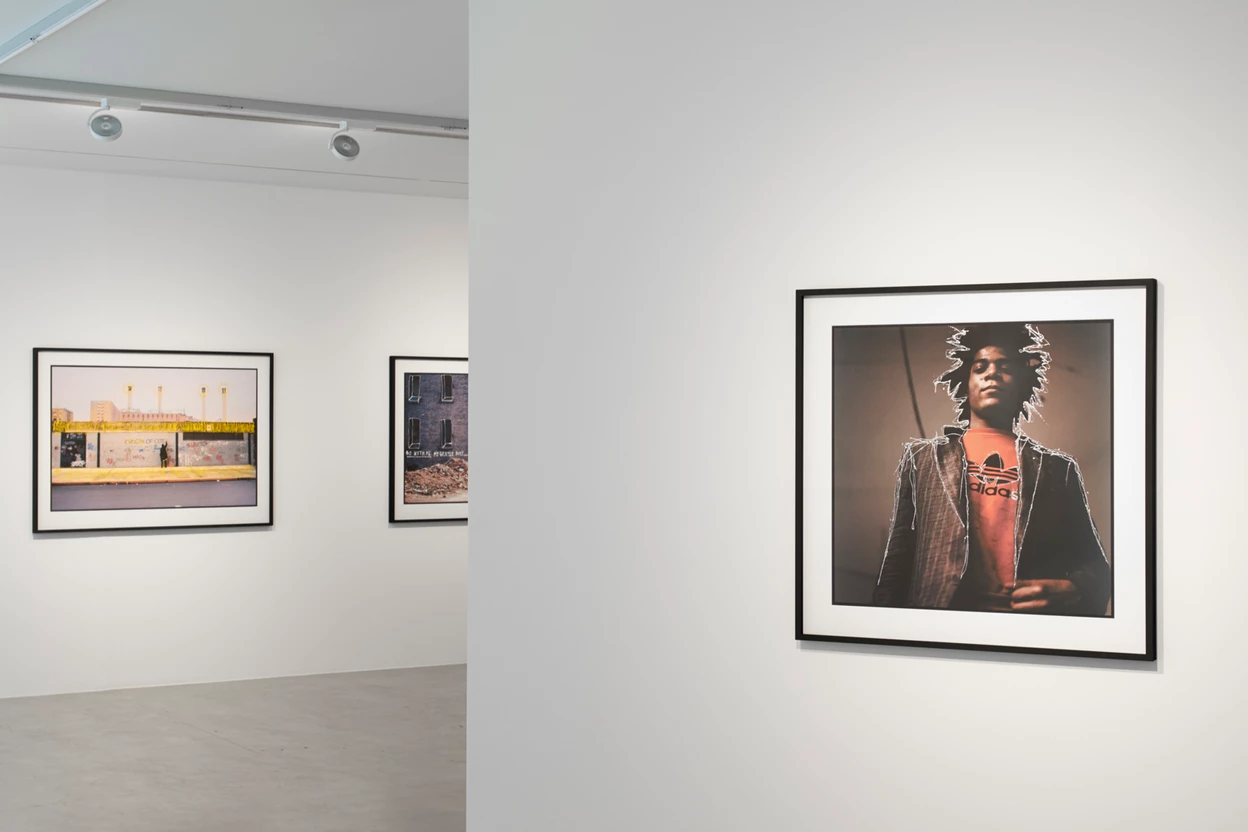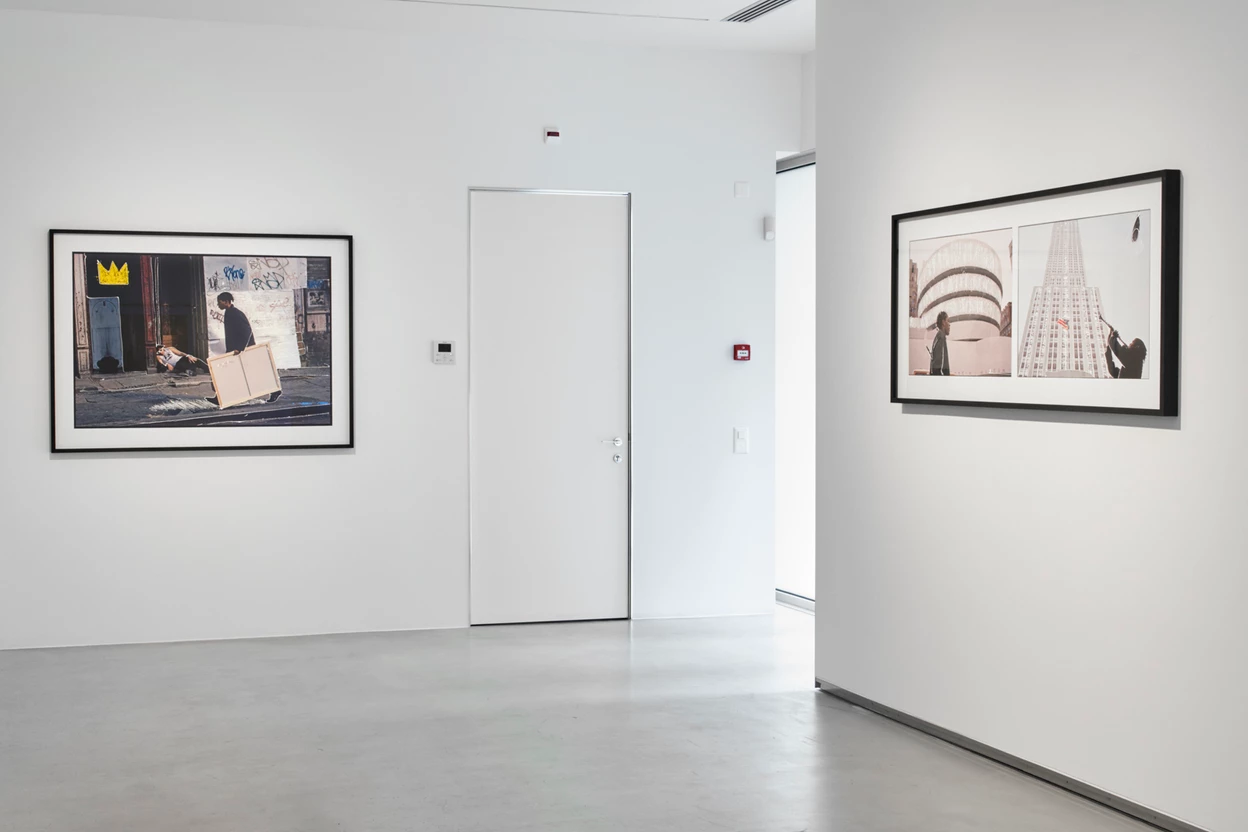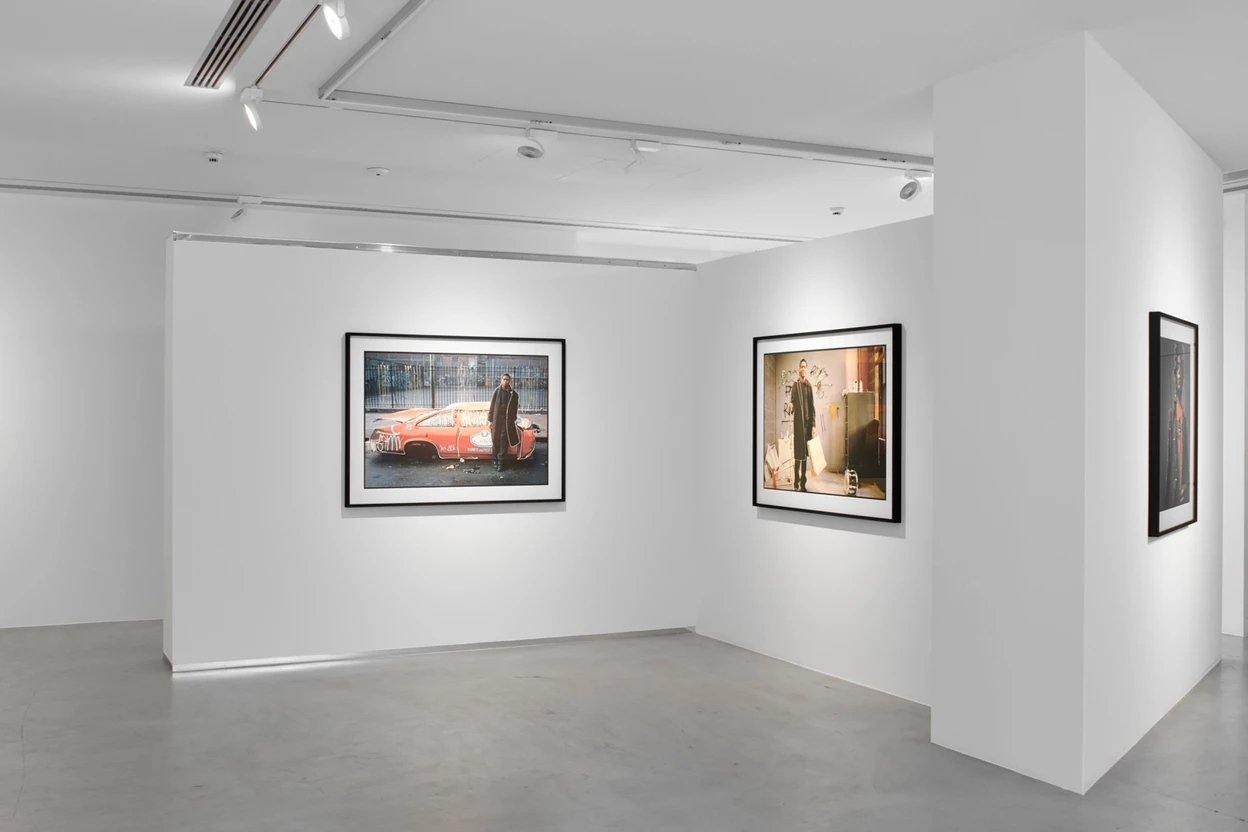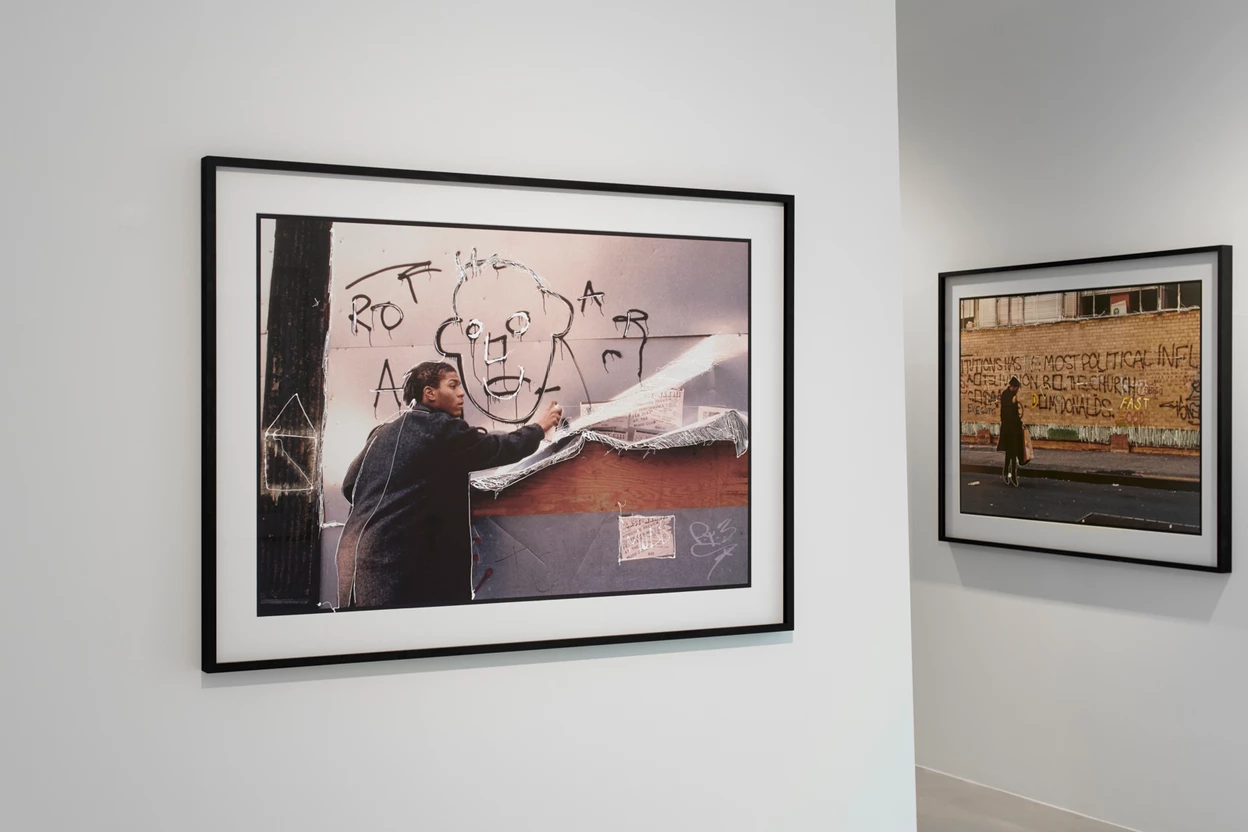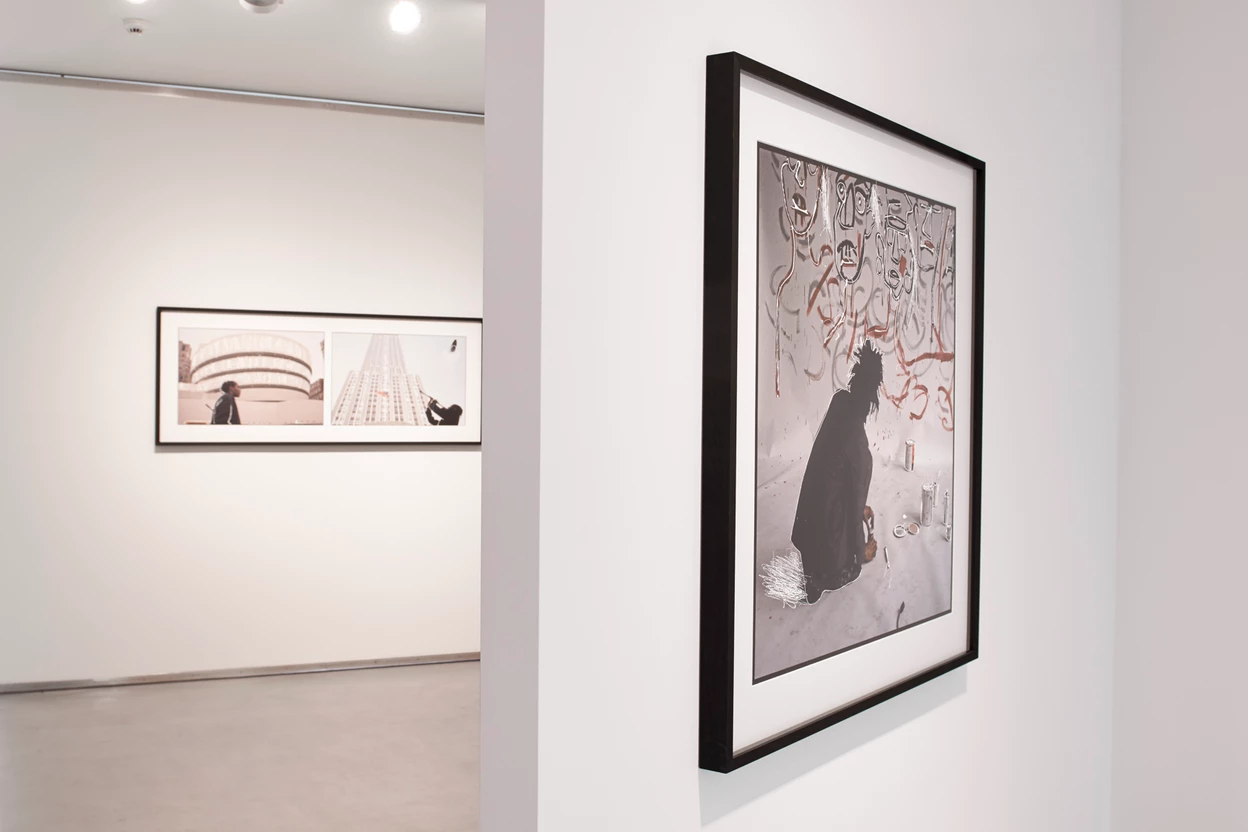Cortesi Gallery is pleased to present the first solo show by Serena Maisto, artist promoted by Art51.
The new project on show is born from the artist’s encounter with the oeuvre of Edo Bertoglio, the swiss photographer and film director who portrayed the unique energy of 1980s New York.
Maisto focuses on one of the central and most controversial personalities of that scene, Jean-Michel Basquiat (1960–1988), whose impressive career and anguished soul were masterfully captured by Bertoglio in a fascinating series of polaroids and in Downtown ‘81, a movie featuring Basquiat himself as its leading character.
Serena Maisto and Edo Bertoglio are both deeply connected with New York. Bertoglio experienced the city in full, between the 70s and 80s, making close friends with musical idols and artists such as Madonna, Blondie, Grace Jones, Keith Haring and Andy Warhol, and documenting their lifestyle and performances. Maisto’s body of works, on the other hand, is characterised by paintings on different supports, made using the dripping and action painting techniques that were so dear to Pollock.
When Serena Maisto discovered Bertoglio’s polaroids of Basquiat for the first time, she was astounded, and remains hypnotised by them. “I’ve immediately felt the urge to paint on those pictures,” she says, “as to underline the sharp shapes, the words written on the wall in the background, those messages to the world.” In the meantime, Bertoglio had come back to his native Lugano and, when the two met in person, a connection developed instantly, leading to an exceptional collaboration. Bertolglio showed Maisto some photographs from his archive and asked her to interact with them.
In 2016 Maisto started working on the first piece of the series that will be exhibited at Cortesi Gallery: a portrait of Jean-Michel Basquiat standing in front of one of his graffitis, wearing an American football cap. Bertoglio immortalised his friend, with whom he had spent the night, at the exit of New York Tribeca’s MUDD Club.
Serena Maisto’s series developed from the appropriation of the photographs, turning them into paintings in which contouring lines have been remarked, and the figures almost framed. The photographer’s eye creates a time line, a temporal portal that allows Maisto to dialogue with Basquiat and invites the spectators to do so as well.
The works on show function on multiple levels. First is the interaction between the artist and the medium, from the moment she modifies it with her intervention; then comes the dialogue between the photographer and the person portrayed, thanks to which Bertoglio catches glimpses of his friend’s life; finally there is the interaction between authors, where the painter – who uses the polaroids – becomes one with the photographer. The result is an almost metaphysical, intimate discourse, where the works of the three people involved converse, overcoming time barriers and creating a fresh, new narration.
“This project will somehow bring Basquiat back to life” said Serena Maisto “underlining and highlighting words or images, which might be the same, or slightly different, form the originals. Picture after picture, the three of us will get closer to being in contact in the present, in a journey that will cross New York’s streets and arrive to the closed spaces of an atelier”.
